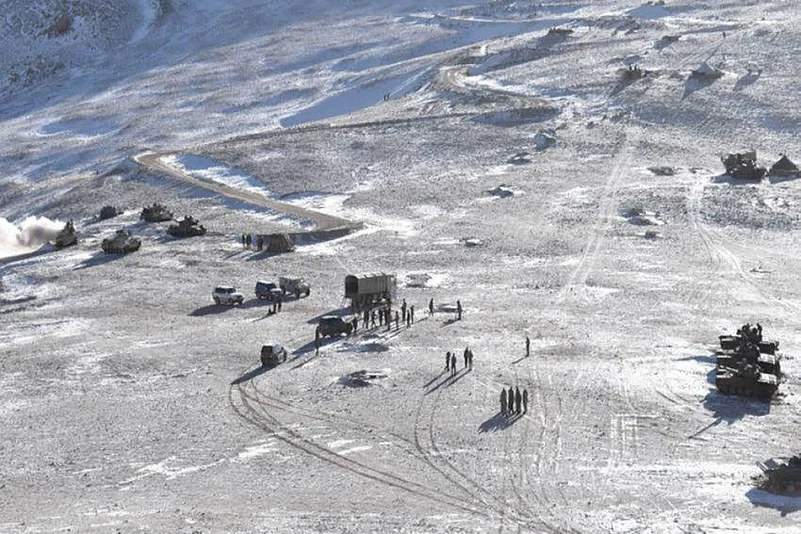After the border war between India and China in 1962, when the People’s Liberation Army rolled into Arunachal (then called NEFA the North East Frontier Agency) pundits in New Delhi decided not to build roads and other infrastructure in the area. The PLA had come down to the foothills and could easily have entered the Brahmaputra plains to Tezpur in Assam. The idea was that roads and bridges would further ease the way for the Chinese army if they wanted to come in again. As such Arunachal remained untouched. This policy of the government was endorsed by anthropologist Verrier Elwin, who felt the best way to protect the tribes living in this remote area of the country was to shield them from disrupting modern conveniences. The idea was to preserve their way of life. The repercussions of that policy are there for all to see.
But that policy had far-reaching consequences and the effects are apparent now. People living in villages along Arunachal’s border with China are leaving their homes and moving out of ancestral land for lack of basic facilities. An expert on migration within India, who did not wish to be identified said: ``This has been happening in the border villages of Arunachal for around five to ten years. People are moving to district headquarters for better educational and health facilities and work opportunities.’’
To prevent the inward migration of the local population, a clutch of local legislators has got together to stop the exodus. This comes at a time when India-China ties have hit a major snag following the armed confrontation between the two armies in Ladakh last summer. It also comes in the wake of a Pentagon report that China has built a large 100-home civilian village inside disputed territory between the Chinese Tibet Autonomous Region and India’s Arunachal state. The village is said to be located nearly 4-5 kilometres inside Indian territory. But that part of the border though inside Indian territory has been in China’s control since 1959, according to military sources. However construction of permanent residences is recent and began perhaps around 2018, when Prime Minister Narendra Modi and Chinese President Xi Jinping were holding informal tete a tetes and the two Asian leaders seemed set to work on improving overall relations and spoke about ushering in the Asian century. Under Xi, despite the surface bonhomie with Modi, China had become much more aggressive in its territorial claims. This is in keeping with China’s growing ambitions and determination to be the sole major power in Asia.
The legislators, headed by the speaker of the Arunachal assembly P.D.Sona and supported by BJP lawmaker’s like Lokam Tasser Moa recently initiated the move to ensure that border villages are not abandoned. They are persuading locals not to leave their homes while at the same time appealing to both the central and state governments to develop the border infrastructure—not just roads, but schools, colleges and hospitals, as well extending the mobile network coverage.
It is only in recent decades after China built and developed border across the LAC that New Delhi woke up to the challenge. Prime Minister Manmohan Singh was an enthusiastic proponent of developing the border infrastructure. In fact, he appointed Shyam Saran a former Indian foreign secretary to tour the borders and compile a report on infrastructure development.
Carrying forward the border area development program the Modi government is redoubling efforts to improve connectivity in border states. While New Delhi is focussing on building roads and airports as well as extending train lines to forward areas with an eye on security, the lawmakers of Arunachal want the governments to provide other facilities as well, so that villagers are not forced to leave their land for a better quality of life. The initiative taken by the legislators is aimed to strengthen the border villages. New Delhi is undertaking a massive infrastructure development program across the border areas of Arunachal Pradesh and Ladakh. What the lawmakers want are better schools, colleges and health facilities so that people do not have to travel to district headquarters for their basic needs.
Arunachal Legislators Want Better Facilities For Villages On China Border To Halt Migration
People living in villages along Arunachal’s border with China are leaving their homes and moving out of ancestral land for lack of basic facilities.
Getting your Trinity Audio player ready...

Arunachal Legislators Want Better Facilities For Villages On China Border To Halt Migration
Arunachal Legislators Want Better Facilities For Villages On China Border To Halt Migration















